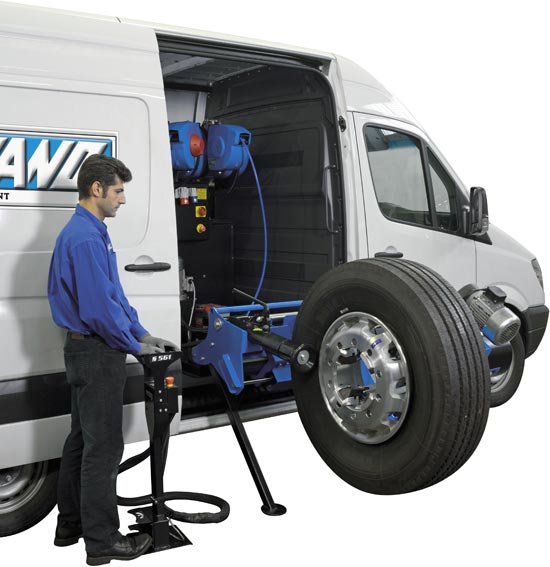Raise Your Experience: Trust Fund Morris Tires for GMC Tires Service
Raise Your Experience: Trust Fund Morris Tires for GMC Tires Service
Blog Article
Tire Service: The Impact of Climate Problems
When it comes to making sure ideal efficiency and safety on the road, recognizing the impact of climate conditions on tire solution is critical. GMC Tire Service. In this conversation, we will discover the elaborate connection between climate conditions and tire solution, dropping light on the importance of weather-specific tire maintenance practices and considerations.
Heat and Tire Performance
When revealed to heats, tires experience adjustments in performance that can substantially influence car security and handling. The heat produced from long term driving or hot weather condition problems causes the tire rubber to soften, bring about decreased walk life and increased wear. As the rubber ends up being softer, the tire's grasp on the roadway diminishes, influencing stopping ranges and general grip. In severe instances, excessive warm can even cause tire blowouts, posturing an extreme security threat to the lorry and its occupants.

Winter Effects
Cold climate conditions can have a substantial effect on tire performance and security. As temperatures decrease, tire rubber can set, bring about reduced grip on icy or snow-covered roads. In winter, tires might additionally shed air pressure a lot more rapidly, which can affect taking care of and gas effectiveness. In addition, cold temperature levels can cause tire sidewalls to tense, increasing the threat of damages from pits or various other roadway threats.
To alleviate the results of cool weather on tires, it is important to consistently examine tire pressure and inflate them to the maker's suggested levels. Utilizing winter months or all-season tires designed for winter conditions can likewise improve traction and grip on icy or snowy roads. Correct tire upkeep, including regular examinations for wear and damages, comes to be much more crucial throughout chillier months to make sure ideal efficiency and safety and security.
Rainy Conditions Impact
Throughout rainy problems, tire performance and safety and security can be dramatically affected by the wet road surfaces and decreased presence. The tread pattern of tires plays an important role in keeping traction on wet roadways. Tires with damaged footsteps are extra prone to hydroplaning, where a layer of water develops in between the roadway and the tire surface area, bring about loss of traction. To battle this, motorists need to routinely check their tires for sufficient tread depth and take into consideration investing check my blog in tires especially designed for damp conditions.
Furthermore, rainy weather can likewise reduce visibility, making it testing for motorists to see the roadway in advance clearly (GMC Tire Service). In such conditions, it is essential to readjust driving rates as necessary and preserve a secure following distance to enable for abrupt stops. Properly filled with air tires can additionally assist in preserving control on damp roads by offering far better handling and grip
Snow and Tire Safety
Snow-covered roads position one-of-a-kind challenges for drivers, emphasizing the importance of proper tire choice and maintenance. When driving in snowy problems, having the best tires can make a substantial difference in safety and security and efficiency. Winter months tires are developed with special rubber compounds and tread patterns to supply far better traction on snow and ice contrasted to all-season tires. The much deeper footsteps and sipes of wintertime tires assist hold the road better, lowering the risk of sliding and slipping.

Furthermore, vehicle drivers should consider setting up tire chains in severe snowy conditions. Tire chains supply added traction by grasping the snow and ice, improving stability and control. However, it is very important to follow manufacturer directions when making use of and mounting tire chains to avoid damage to the tires and car. By selecting the ideal tires, maintaining proper rising cost of living, and considering added traction aids like tire chains, chauffeurs can boost their safety and security when navigating snow-covered roads.
Weather-Related Tire Maintenance
When encountered with various weather condition conditions, appropriate tire maintenance comes to be an important facet of lorry safety and security and efficiency. Weather-related tire upkeep includes a variety of methods focused on making sure optimum tire function and long life in different climate scenarios. One vital facet of weather-related tire upkeep is tire pressure law. Rising and fall temperatures can trigger tire pressure to differ, affecting grip and fuel performance. On a regular basis adjusting and checking tire stress according to manufacturer suggestions is crucial for safe driving in altering climate condition. In addition, tire walk depth plays a significant duty in managing different weather aspects. Tires with sufficient tread deepness supply far better grasp on damp or icy roadways, reducing the threat of hydroplaning or skidding. Checking tire tread on a regular basis and changing tires when step wear gets to a certain deepness is vital for maintaining traction and stability in unfavorable weather. By focusing on weather-related tire maintenance, drivers can boost safety and security, enhance car performance, and extend the life-span of their tires.
Final Thought
To conclude, climate conditions have a substantial effect on tire performance and safety and security. From warmth influencing tire stress and use to winter lowering traction, it is necessary to take into consideration the weather condition when keeping and utilizing tires. Stormy conditions can reduce grasp and cause hydroplaning, while snow can increase the threat of crashes if tires are not correctly geared up. Weather-related tire maintenance is essential in ensuring optimum performance and security when driving.
In this conversation, we will check out the complex partnership in between climate conditions and tire service, dropping light on the relevance of weather-specific tire maintenance practices and factors to consider.

Report this page